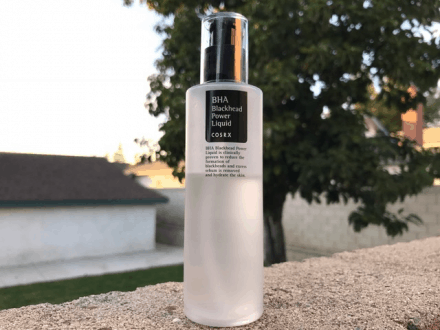27 Nov AHA, BHA & PHA
Difference Between AHA, BHA & PHA; Which Acid Is Right For your Skin?

ACIDS IN SKINCARE: All YOU NEED TO KNOW
You may have heard that acids are good for your skin and abbreviations like AHA, BHA, and PHA are familiar. But what exactly do these abbreviations mean, and how do these acids affect the skin? Most importantly, which acid is best for your skin?
Acids may be the solution to some of the most skincare issues, such as acne, uneven skin tone, rough texture, and pigmentation. The various types of acids exfoliate the skin, which means they help to loosen the top/bottom layer of dead skin cells. The end result is a cleaner, healthier-looking skin surface.
AHA (Alpha Hydroxy Acids)
Alpha Hydroxy Acids, or AHAs, are a group of acids found in a variety of foods such as fruit, milk, and sugar cane. The AHAs exfoliate in different ways, with glycolic acid being the most active of the bunch.
AHAs are chemical exfoliators that, when used on a regular basis, can be extremely beneficial for oily or blemish-prone skin. Glycolic Acid and Lactic Acid are the dominant forces in this group. You will find them mixed in with serums, creams, cleansers, and toners depending on how big of a dose you choose to use.
Cosrx AHA/BHA clarifying toner
AHA Skincare Benefits
These may help with wrinkles, irregular skin texture, and dark circles by basically scraping away dead skin cells on the surface of the skin. You can notice a mild tingling sensation while using them, but don’t be upset; they’re just doing their work.
Mature skin; AHAs promote cell regeneration in the skin, which helps to reduce scars and wrinkles and even out skin tone.
Dry Skin; Lactic acid is best for dry skin because it blends well with moisture.
Sensitive skin; Mandelic acid is another member of this group, and its anti-inflammatory properties make it suitable for slightly more sensitive or acne-prone skin.
BHA (Beta Hydroxy Acids)
BHAs are also chemical exfoliators that treat different skin problems. BHAs are perfect for those who have oily skin and struggle with acne, blackheads, and facial redness. In skincare, BHAs are made up of salicylic acid and this acid is naturally present in the white willow tree.
BHA Skincare Benefits
While AHAs are just water-soluble, BHAs are oil-soluble which makes them suitable for people who have an oily T-zone. They have antibacterial and anti-inflammatory properties and can penetrate under the oil that clogs your skin. As a result, they help in the disappearance of spots and the reduction of redness.
Exfoliating with a salicylic acid-containing BHA is a game-changer like COSRX BHA Blackhead Power Liquid.
Oily skin; Since BHA is fat-soluble and anti-inflammatory, it’s ideal for oily skin, clogged pores, and inflamed acne. Salicylic acid dissolves excess sebum by penetrating the pores.
Mature Skin; BHA promotes cell regeneration, which helps to reduce fine lines, wrinkles, and sun exposure.
PHA (Poly Hydroxy Acids)
PHAs have larger molecules than AHAs, so they absorb the skin more slowly and don’t exfoliate as effectively as AHAs and BHAs. PHAs also act as antioxidants and bind moisture to the skin.
They only work on the skin’s surface, leaving the delicate layers underneath undisturbed. This results in maximum skin renewal with the least amount of frustration. The most common PHA acids are Galactose, Lactobionic, and Gluconolactone.
PHA Skincare Benefits
They’re particularly useful for people who find other acids to be too harsh. PHAs can be used to resurface even the most sensitive skin types. They’ve been proven to be safe for people with dry and itchy skin.
Dry and Sensitive Skin; These gentle acids are great for eczema and rosacea, as well as other sensitive and dry skin conditions.
Mature Skin; Their antioxidant properties can help in the preservation of collagen in the skin.


No Comments